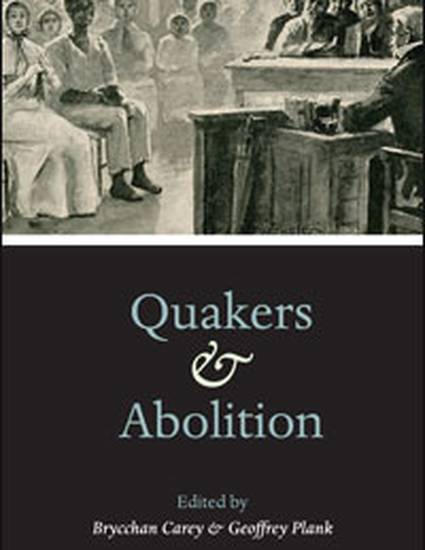
Article
Review of Quakers And Abolition by Brycchan Carey and Geoffrey Plank
Early American Literature
(2017)
Abstract
Some of the best-known Quaker abolitionists in literature are to be found in Harriet Beecher Stowe's Uncle Tom's Cabin (1852). In chapter 13, "The Quaker Settlement," idealized members of the Society of Friends in Ohio, Rachel and Simeon Halliday, share a meal at the same table with escaped slaves Eliza, Harry, and George Harris, before aiding them in their flight to Canada. Of this memorable moment, Stowe writes, "It was the first time that ever George had sat down on equal terms at any white man's table; and he sat down, at first, with some constraint, and awkwardness; but they all exhaled and went off like fog, in the genial morning rays of this simple, overflowing kindness" (Boston, 1852 [205]). Stowe partially modeled her literary Quakers, the Hallidays, on a radical antislavery Friend, Thomas Garrett, of Wilmington, Delaware, who was an active member of the Underground Railroad. In A Key to Uncle Tom's Cabin (1853), Stowe refers to Thomas alternately as "John Garret," who was heavily fined for conveying a slave family five miles in a wagon. Stowe published an 1853 letter from John Garret in A Key, in which he exclaims, "I am called an Abolitionist; once a name of reproach, but one I have ever been proud to be considered worthy of being called. For the last twenty-five years I have been engaged in the cause of this despised and much-injured race, and consider their cause worth suffering for" (161). The details of the trial, of his accomplice John Hunn, and of the dollar amount of the fine match details of Thomas Garrett's life. While Stowe's book helped establish a mythology of Quakers, the 2014 edited collection Quakers and Abolition moves well beyond mythical portraits to examine the various roles historical Quakers played in the transatlantic abolition movement, revealing the range and diversity of their involvement.
Disciplines
Publication Date
2017
DOI
10.1353/eal.2017.0021
Citation Information
Nancy Lusignan Schultz. "Review of Quakers And Abolition by Brycchan Carey and Geoffrey Plank" Early American Literature Vol. 52 Iss. 1 (2017) p. 253 - 256 Available at: http://works.bepress.com/nancy-schultz/1/
